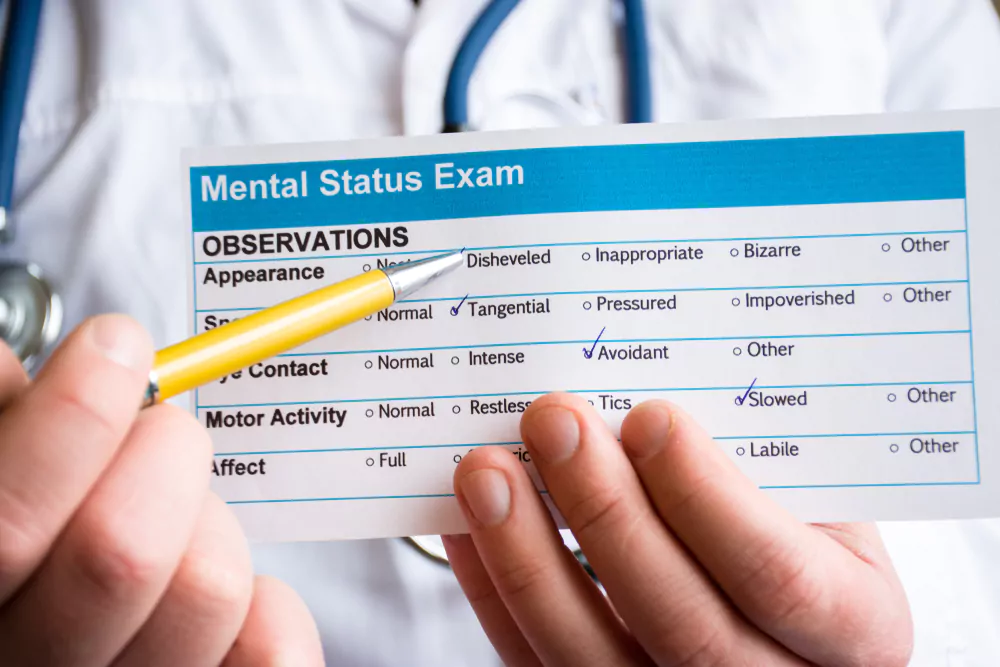A Guide To Mental Health And Psychiatric Nursing

In today’s fast-paced and demanding world, the importance of mental well-being cannot be overstated. This blog aims to shed light on the critical role of psychiatric nursing in promoting and maintaining mental health, as well as providing care for individuals facing mental health challenges.
Mental health issues can affect anyone, regardless of age, gender, or background. Yet, there remains a stigma surrounding these conditions, leading to limited understanding and inadequate support. That’s where psychiatric nursing steps in. These dedicated healthcare professionals play a pivotal role in addressing the unique needs of individuals with mental health disorders.
In this blog, we will explore the multifaceted aspects of mental health nursing, covering a wide range of topics. We will delve into the fundamental principles of psychiatric nursing, including assessment, diagnosis, and treatment planning. We’ll also discuss therapeutic communication techniques and the vital role of empathy in establishing a trusting nurse-patient relationship.
- Introduction to Mental Health
- The Role of Psychiatric Nursing
- Skills and Qualities of a Psychiatric Nurse
- The Education and Training of a Psychiatric Nurse
- Challenges and Rewards in Psychiatric Nursing
- Therapeutic Relationships in Psychiatric Nursing
- Holistic Approach in Psychiatric Nursing
- Mental Health Advocacy
- The Future of Psychiatric Nursing
- Wrapping Up
1 Introduction to Mental Health

Before delving into the specifics of psychiatric nursing, it’s essential to understand the fundamentals of mental health. The World Health Organization (WHO) defines mental health as “a state of well-being in which an individual realises his or her own abilities, can cope with the normal stresses of life, can work productively and is able to make a contribution to his or her community.”
Mental health is not merely the absence of mental disorders or disabilities. Instead, it encompasses emotional, psychological, and social well-being. It affects our thoughts, feelings, and actions, making it a vital component of overall health and wellness.
2 The Role of Psychiatric Nursing
Psychiatric nursing, also known as mental health nursing, is a specialised branch of nursing that focuses on the care of people suffering from mental illness or distress. It involves the assessment, diagnosis, and treatment of people with psychiatric disorders and the promotion of mental health. Psychiatric nurses work in a variety of settings including psychiatric hospitals, general healthcare facilities, community health centres, and patients’ homes.
They engage in a variety of tasks that include but are not limited to administering medication, offering psychotherapy, creating and managing care plans, advocating for patients, and educating families about mental health disorders and coping mechanisms.
3 Skills and Qualities of a Psychiatric Nurse

Psychiatric nursing is a demanding profession that requires certain skills and qualities. These include:
- Empathy: This is the ability to understand and share the feelings of others. Empathy is fundamental in building trust and therapeutic relationships with patients.
- Communication skills: Psychiatric nurses need to communicate effectively with patients, their families, and other healthcare professionals.
- Resilience: Dealing with patients suffering from mental health conditions can be emotionally draining. Resilience helps nurses cope with stressful situations, avoid burnout, and continue to provide high-quality care.
- Patience: Progress in mental health treatment can often be slow and gradual. Hence, psychiatric nurses need to have patience and demonstrate tolerance when dealing with challenging situations or behaviours.
- Problem-solving abilities: Every patient is unique and may require different treatment strategies. Nurses need to be able to think critically and solve problems creatively.
4 The Education and Training of a Psychiatric Nurse
To become a psychiatric nurse, one must first complete a nursing program to become a Registered Nurse (RN). This can be done through a diploma program, an associate degree, or a bachelor’s degree in nursing. After gaining licensure as an RN, those interested in psychiatric nursing often gain experience in mental health settings and may then choose to pursue additional certification or a graduate degree specialising in psychiatric nursing.
In the US, Advanced Practice Registered Nurses (APRNs) specialising in psychiatric and mental health care can earn the title of Psychiatric Mental Health Nurse Practitioner (PMHNP). PMHNPs hold a master’s or doctoral degree in nursing, have advanced clinical training, and are often able to prescribe medications (scope of practice varies by state).
5 Challenges and Rewards in Psychiatric Nursing
Psychiatric nursing, while rewarding, is not without its challenges. Nurses often deal with complex cases, stigma associated with mental health, and the emotional toll of caring for individuals during their most vulnerable times. However, the profession also offers the immense reward of making a difference in people’s lives, helping them navigate their journey to recovery and well-being. The field of psychiatric nursing provides an opportunity to truly connect with patients on a personal level, understanding their unique perspectives and struggles, and guiding them toward healthier lives.
6 Therapeutic Relationships in Psychiatric Nursing

One of the most significant aspects of psychiatric nursing is the establishment and maintenance of therapeutic relationships with patients. This relationship is characterised by mutual trust and respect, active listening, and a focus on the patient’s needs and experiences. The therapeutic relationship is a crucial component of effective mental health treatment, serving as a vessel through which healing, growth, and recovery can occur.
It’s worth noting that establishing these relationships requires clear boundaries to maintain a professional environment conducive to treatment. Therapeutic relationships differ significantly from social or familial relationships; they are structured and guided by ethical codes and professional standards.
7 Holistic Approach in Psychiatric Nursing
In recent years, the approach to mental health care has become increasingly holistic, and this shift is evident in the field of psychiatric nursing. A holistic approach recognizes that mental health is deeply interconnected with physical health, social circumstances, environment, and personal experiences.
As a result, psychiatric nurses often coordinate care with other health professionals including social workers, occupational therapists, psychologists, and physicians. They also consider factors such as a patient’s physical health, social relationships, living conditions, and cultural background when developing and implementing care plans.
8 Mental Health Advocacy
Another crucial aspect of psychiatric nursing is advocacy for mental health. Stigma and misunderstanding often surround mental health conditions, which can prevent people from seeking necessary care. Psychiatric nurses play a pivotal role in breaking down these barriers, advocating for their patients’ needs, and educating the public about mental health. They work to ensure that patients receive appropriate care and resources, and strive to create a society where mental health is understood, prioritised, and cared for effectively.
9 The Future of Psychiatric Nursing
The future of psychiatric nursing holds promising advancements. With the integration of technology in healthcare, telepsychiatry is becoming a viable option for providing mental health services, especially to individuals in remote areas. Moreover, ongoing research in neuroscience and psychiatric medications opens new avenues for more effective treatments.
However, with these advancements come new challenges. Ethical considerations, maintaining patient-provider relationships in digital health environments, and ensuring equitable access to these new resources will be essential considerations for the future of the profession.
10 Wrapping Up
Psychiatric nursing is a dynamic and rewarding profession. It offers the opportunity to make a profound impact on individuals’ lives and contribute to the broader effort to improve mental health care and understanding. By combining medical knowledge with empathy, communication skills, and problem-solving abilities, psychiatric nurses provide comprehensive care to individuals grappling with mental health conditions, playing an indispensable role in their journey towards recovery and well-being.
Although challenging, psychiatric nursing is a career path that offers both personal and professional growth. It’s a field where every day presents new opportunities to learn, to connect, and to make a difference. It is an essential part of the healthcare system, and its value cannot be overstated.
The journey to becoming a psychiatric nurse requires dedication, commitment, and a passion for helping others. It’s a journey that promises to be as rewarding as it is challenging, offering the chance to truly make a difference in the world of mental health.
Community Q&A
About This Article
This article has been viewed 436 times.



